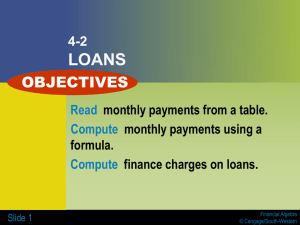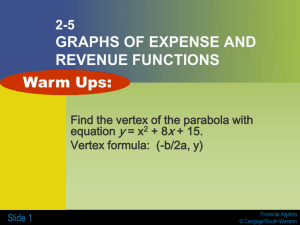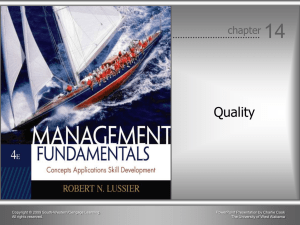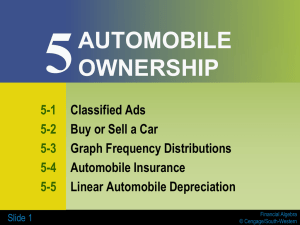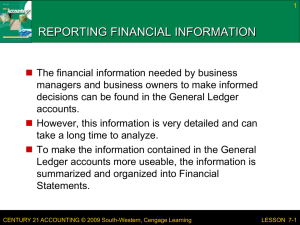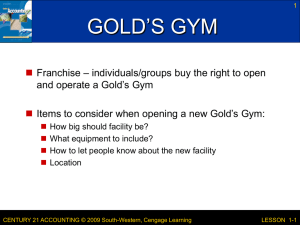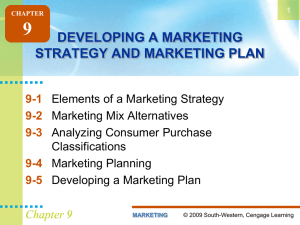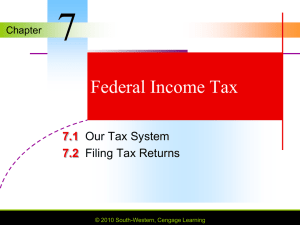Financial Algebra - Kaiserslautern District Mathematics 4-12
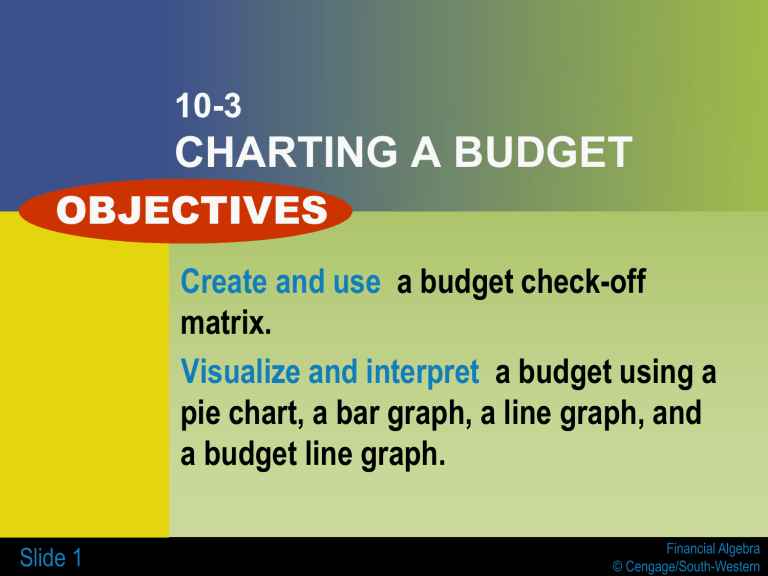
10-3
CHARTING A BUDGET
OBJECTIVES
Create and use a budget check-off matrix.
Visualize and interpret a budget using a pie chart, a bar graph, a line graph, and a budget line graph.
Slide 1 Financial Algebra
© Cengage/South-Western
Slide 2
Key Terms
budget matrix
matrix
row
column
electronic matrix
budget check-off matrix
order of a matrix
pie chart
line graph
bar graph
budget line graph
sector
central angle
Financial Algebra
© Cengage Learning/South-Western
How can you visualize your budget?
Why is it so important to know “how and when money is coming in and going out”?
Slide 3 Financial Algebra
© Cengage Learning/South-Western
Example 1
Create a year-long budget check-off matrix that keeps track of the following household expenses and when they are due.
Mortgage: monthly
Utilities: monthly
Sanitation: quarterly
Insurance: semiannually
Internet: semiannually
Land Line Telephone: monthly
Cellular Telephone: monthly
Lawn and Garden: monthly, April–September only
Snow Removal: November, January, March only
Food: monthly
Childcare: every other month beginning with February
Vet Expenses: semiannually
Slide 4 Financial Algebra
© Cengage Learning/South-Western
Slide 5
CHECK YOUR UNDERSTANDING
When setting up a budget, it is important to understand the meaning of the terms used in Example 1 (monthly, quarterly, and semiannually). Suppose that you decide to put two checks in a box when the expense occurred twice in that month. Use a dictionary to determine if that is a bimonthly expense or a semimonthly expense.
Explain the difference between the two terms.
Financial Algebra
© Cengage Learning/South-Western
EXAMPLE 2
Jeff budgets his monthly expenses as follows.
Household: 40%
Education: 25%
Transportation: 15%
Health: 5%
Savings: 10%
Miscellaneous: 5%
He used a software program to construct this pie chart to show his expense percentages. How did his category percentages affect the construction of the chart?
Slide 6 Financial Algebra
© Cengage Learning/South-Western
Slide 7
CHECK YOUR UNDERSTANDING
Martha budgets x percent of her monthly income for rent. Express the measure of the central angle for a pie chart sector that represents Martha’s rent budget.
Financial Algebra
© Cengage Learning/South-Western
EXAMPLE 3
Kate and Paul budget $800 per month for transportation as shown in the pie chart. What information can you conclude from the pie chart?
Slide 8 Financial Algebra
© Cengage Learning/South-Western
Slide 9
CHECK YOUR UNDERSTANDING
Based upon the information above and knowing that the central angle for the fuel sector is 90 degrees, what information can be determined?
Financial Algebra
© Cengage Learning/South-Western
EXAMPLE 4
Construct a bar graph using the information about heathrelated costs from Sample B on page 496.
Slide 10 Financial Algebra
© Cengage Learning/South-Western
Slide 11
CHECK YOUR UNDERSTANDING
At what amount would a horizontal line be drawn to represent the average monthly budget to the nearest dollar for health-related expenses? In which months was the budgeted amount above average?
Financial Algebra
© Cengage Learning/South-Western
EXAMPLE 5
Over the last few months Kate has spent more than her budgeted amount for her cell phone bill. She decided to track her daily usage to see if she should change plans.
She went online to her cell phone account and got the usage data at the right for the last three weeks. Construct a multiple line graph to identify any of Kate’s usage trends.
Slide 12 Financial Algebra
© Cengage Learning/South-Western
CHECK YOUR UNDERSTANDING
Examine the following line graph depicting Claire’s electric usage for the first six months of last year.
Slide 13
Her electric company uses this data to calculate her monthly budget for electricity, which is the average of the monthly usage costs. If electricity costs $0.15714 per kilowatt-hour, how much will her monthly electric budget be? Round your answer to the nearest dollar amount.
Financial Algebra
© Cengage Learning/South-Western
EXAMPLE 6
Beth is a coffee lover. In her budget, Beth has a section for coffee. She has budgeted $90 per month to spend on the coffee she buys in two different locations. At GasMart, a cup of coffee costs $1. At The Perfect Coffee Company, a cup of coffee costs $3. She tries to balance both through a month.
Construct a budget line that shows the different combinations of the two types of coffee purchase options which allow her to stay within her budget. Then, suppose she has to decrease her coffee budget by 20%. Identify and graph the new budget line.
Slide 14 Financial Algebra
© Cengage Learning/South-Western
Slide 15
CHECK YOUR UNDERSTANDING
Using the coffee budget of $72, suppose that the price of coffee doubles at GasMart. Identify and graph the new budget line equation.
Financial Algebra
© Cengage Learning/South-Western
